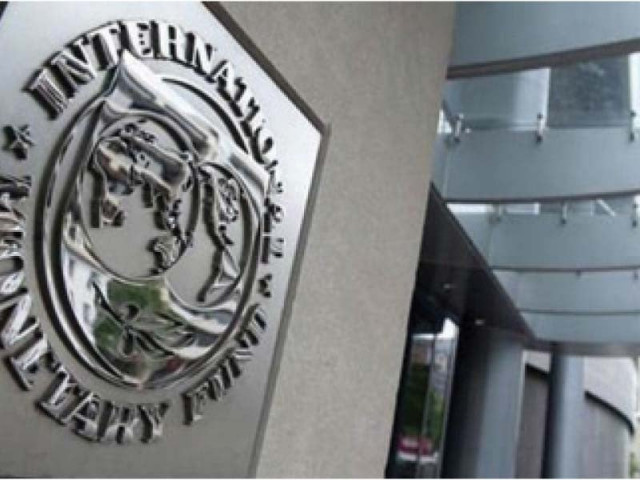In times of rising economic uncertainty
Challenges multiply as Pakistan rebuilds after facing floods of epic proportions

The recently completed combined seventh and eighth reviews of the Extended Fund Facility for Pakistan by the International Monetary Fund (IMF) are expected to bring certain stability to the exchange rate and improve the confidence of different stakeholders in the economy.
The immediate disbursement of $1.1 billion in the last week of August 2022 provided much-needed support to the falling foreign exchange reserves held by the State Bank of Pakistan (SBP). The net reserves increased from $7.7 billion on August 26, 2022 to $8.8 billion on September 2, 2022.
The IMF programme, as has been the case in numerous previous programmes, aims to address external and domestic imbalances while ensuring fiscal discipline and monetary prudence and maintaining a market-determined exchange rate.
The challenges have multiplied as Pakistan rebuilds after facing floods of epic proportions. The government faces a mammoth task to build the required confidence in investors – domestic and foreign. The SBP, in collaboration with the Institute of Business Administration (IBA), Karachi, conducts the Business Confidence Survey every two months. The results collected in the June 2022 wave paint a gloomy picture of the economy as overall business confidence has eroded to 42, indicating negative perceptions of the economy.
Furthermore, inflation expectation is at the highest level, while the current employment index has dipped to the lowest level since December 2020.
The economy is likely to face not only higher levels of inflation but also low levels of production. The current capacity utilisation, which was at 81% in June, has steadied around 70% since August.
The challenges to bringing about economic stability have increased significantly and results of the survey suggest that the government is facing a near Herculean task. The statistics published by the Pakistan Bureau of Statistics (PBS) suggest a recovery in exports in August 2022 from the fall in July 2022.
Exports in July 2022, at $2.2 billion, had declined by a massive 22.7% month-on-month. Exports in June 2022 were reported at $2.9 billion, higher by 11% year-on-year. However, exports in August 2022 recovered to $2.5 billion.
Considering the statistics of imports, they increased 21% in August 2022 month-on-month. They were reported at $4.9 billion in July 2022, decreasing from $7.88 billion in June 2022.
The government had taken measures to curtail imports, some of which were lifted in August 2022. However, the initial decline in imports could be the result of a slowdown in business activities. Furthermore, the remittances in July 2022 had also declined year-on-year as well as month-on-month. In essence, both the inflows and outflows decreased in July 2022. Exports in July 2022 reported a month-on-month decline across all major product categories. Exports of the food group decreased 28.3% and exports of the textile group fell 13.2%. Even within the textile industry, major products registered a decline in their exports. Interestingly, the flow of export receipts through banks, reported by the SBP, in July 2022 was approximately $700 million less than that reported in June 2022. This was driven mainly by textile and food exports.
This sporadic behaviour in export receipts suggests that exporters may have tried to maximise benefits from the movement in Pakistani rupee against the US dollar as well as manoeuvred to take advantage of the shift in government policies in the new budget, impacting their finances. The real effective exchange rate (REER) at 93, as reported by the SBP in July 2022, is one of its lowest levels since August 2020. REER was reported at 107.5 in June 2018. The PML-N government has previously preferred an overvalued rupee against the US dollar. This could potentially impact the behaviour of currency speculators.
However, the continuous decline in the value of the rupee in recent months suggests otherwise. The widening gap between the inter-bank and open market exchange rates should be disconcerting as it indicates volatility in the currency market. As the government faces mounting challenges on the economic front, it must take steps to address them to reduce uncertainty and volatility in the economy. It must realise that Pakistani producers are uncompetitive in the global and regional markets, which not only reduces exports but also leads to an increase in imports.
Locally produced goods are unable to compete with imported goods. This increases demand for the latter in the domestic market, which is fulfilled through informal channels when import restrictions, such as the limits on the issuance of Letters of Credit, are imposed. Higher import tariffs further impact the competitiveness. The problems are particularly compounded when local producers are unable to acquire essential imported unfinished goods that have a limited number of substitutes in the domestic market.
Hence, the local producers are unable to meet the demand for their products and restrictions on imports exacerbate the market conditions. Lack of availability of products not only increases the prices of goods but can also result in supply of poor-quality substitutes, hurting the consumers further.
Pakistan needs to focus on increasing dollar inflows into the economy through exports, FDI, remittances and better negotiations with donor agencies and partners. The government must support the private sector in developing trade linkages with important trading partners to acquire imported goods at the best prices. An improved level of competitiveness is the key to better economic stability.
The writer is the Assistant Professor of Economics and Research Fellow at CBER, Institute of Business Administration, Karachi
Published in The Express Tribune, September 26th, 2022.
Like Business on Facebook, follow @TribuneBiz on Twitter to stay informed and join in the conversation.



















COMMENTS
Comments are moderated and generally will be posted if they are on-topic and not abusive.
For more information, please see our Comments FAQ